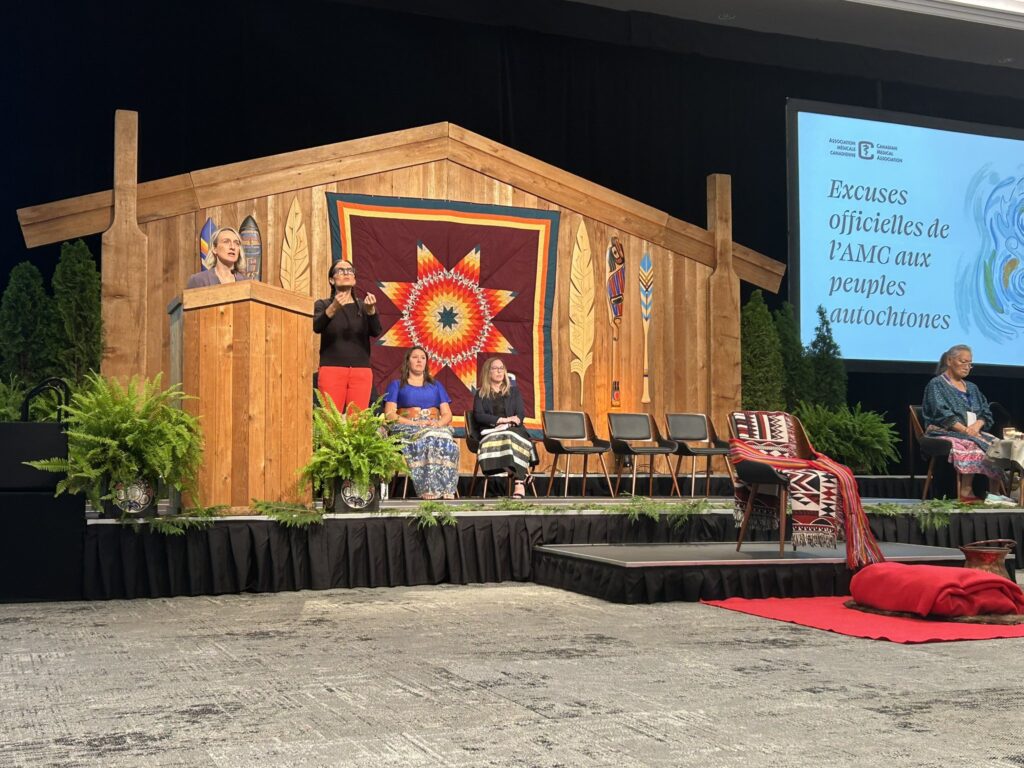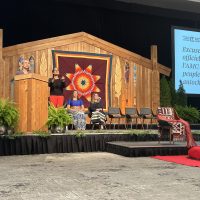A moment of silence was taken after a national health advocacy group admitted to harming Indigenous Peoples for over a century.
On Sept. 18, the Canadian Medical Association (CMA), a group made up of more than 75,000 physicians and medical learners, hosted an apology ceremony and gave recognition to the role of the medical profession in past and ongoing harms against First Nations, Inuit, and Métis Peoples in the health system.
“We accept responsibility for the CMA’s actions and inactions,” said CMA President Dr. Joss Reimer. “We commit to acknowledging those mistakes.”

The apology cited specific examples of harm, which had ripple effects on future generations: The Indian hospital system which embedded systemic racism and discrimination in the larger Canadian health system; segregated hospitals; forced and coerced sterilization; forced medical experimentation on Indigenous children in residential schools, including forced malnourishment; medical experimentation on Indigenous adults; child apprehensions; neglect and abuse.
While these gestures are important, this apology lacks justice. With this moment of silence, we should think about pulling out the medical records that may contain this malpractice. As an Indigenous person, woman, and mother, the future generations are my children. I can’t imagine if someone experimented on my sons or daughter. They don’t acknowledge the victims or families, there are no statistics, no case studies, no humans put at the forefront, and no identifiable perpetrators.
Somewhere along the way in the medical field, our personhood was lost. Doctors and their primary care team are the first people we see when we’re born, to check the well-being of our bodies as we enter into this world. We’ve just let out our first kicks and cries but somehow we’ve already become a target. It’s almost as if the body disappears after it is counted and controlled with a Canadian birth certificate.
Somewhere along the way in the medical field, our personhood was lost.
Some babies could not even be born because of the countless forced and coerced sterilizations performed. Such was the case when an Inuk mother concerned about infertility realized she had an IUD—a story reported on CBC’s Unreserved by Marcia Anderson, vice-dean of Indigenous health, social justice and anti-racism at the Rady Faculty of Health Sciences at the University of Manitoba. “She was really surprised. She did not have any knowledge of having this IUD in. It was clear to me then that she had not given informed consent,” said Anderson.
We can’t just move on and reconcile. We need real accountability. This is more than just “mistreatment.” These are crimes. They are still hiding the bodies they committed the crimes against. I want the CMA to go back and find specific examples of the mistreatment.
There’s a lot more the CMA could be doing instead of being the scapegoat for these crimes.
I want names of abusers. I want people charged. I want families to know the whole truth and nothing but the truth of what happened to our loved ones. The CMA acknowledged the courage that Indigenous knowledge keepers, elders, and partners had in sharing their stories, but do they have the courage to turn in those causing the harm? If they called them crimes, would they still take full responsibility?
CMA should commission research into the historical mistreatment they named, in order to be a catalyst for advocacy. They can facilitate the search of records to identify the harms done by medical professionals in the healthcare system. They can share everything they find. They can help the victims’ families have awareness, closure, and settlements.
There’s a lot more the CMA could be doing instead of being the scapegoat for these crimes. We need more than just apologies and hotlines to call when we’re sad. We need names. We need justice.
Janell Henry, born in Manitoba, is a Saulteaux writer and reporter based in Winnipeg. Her hobbies include photography, baking, and bike riding.

